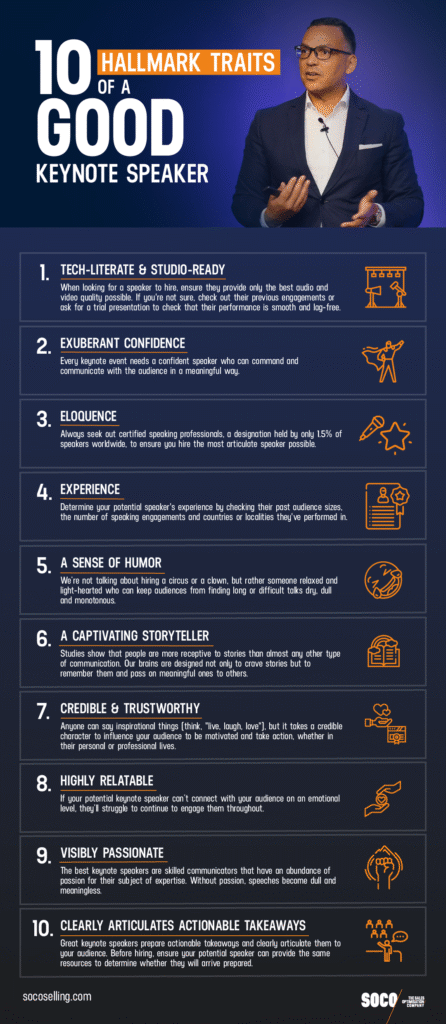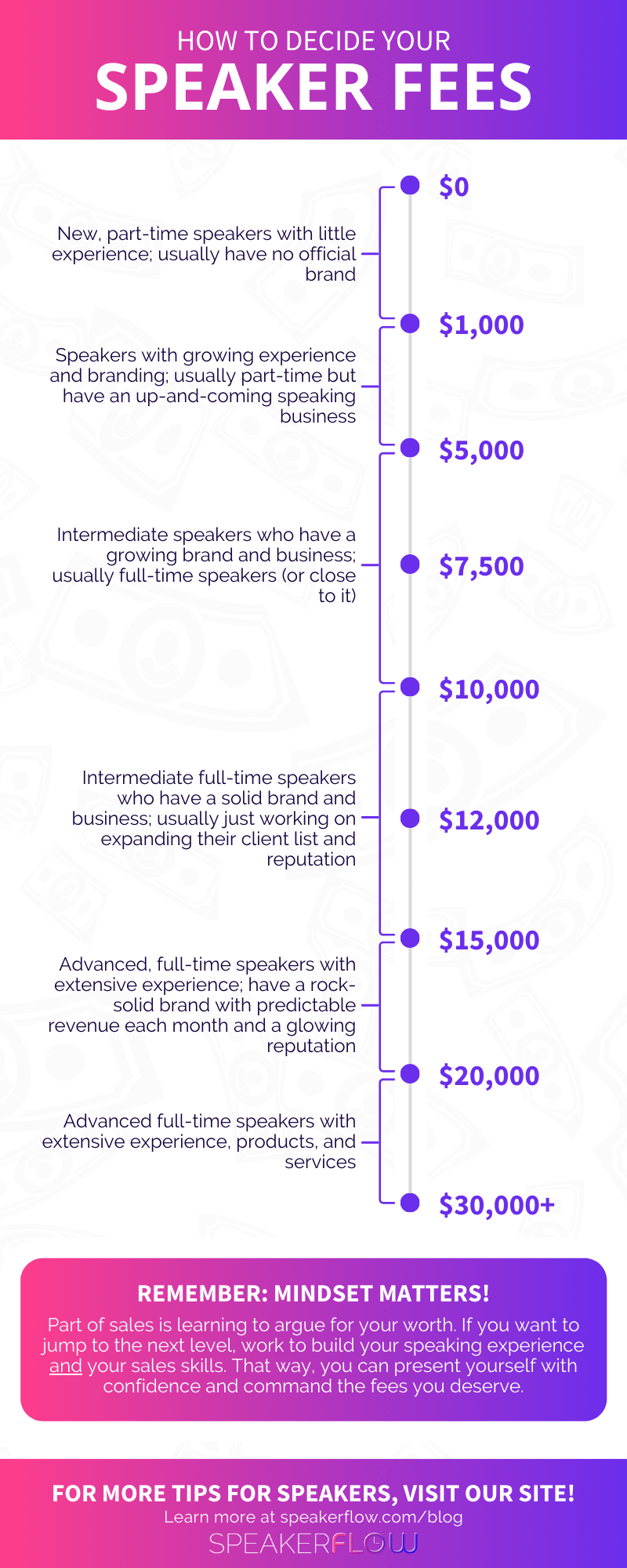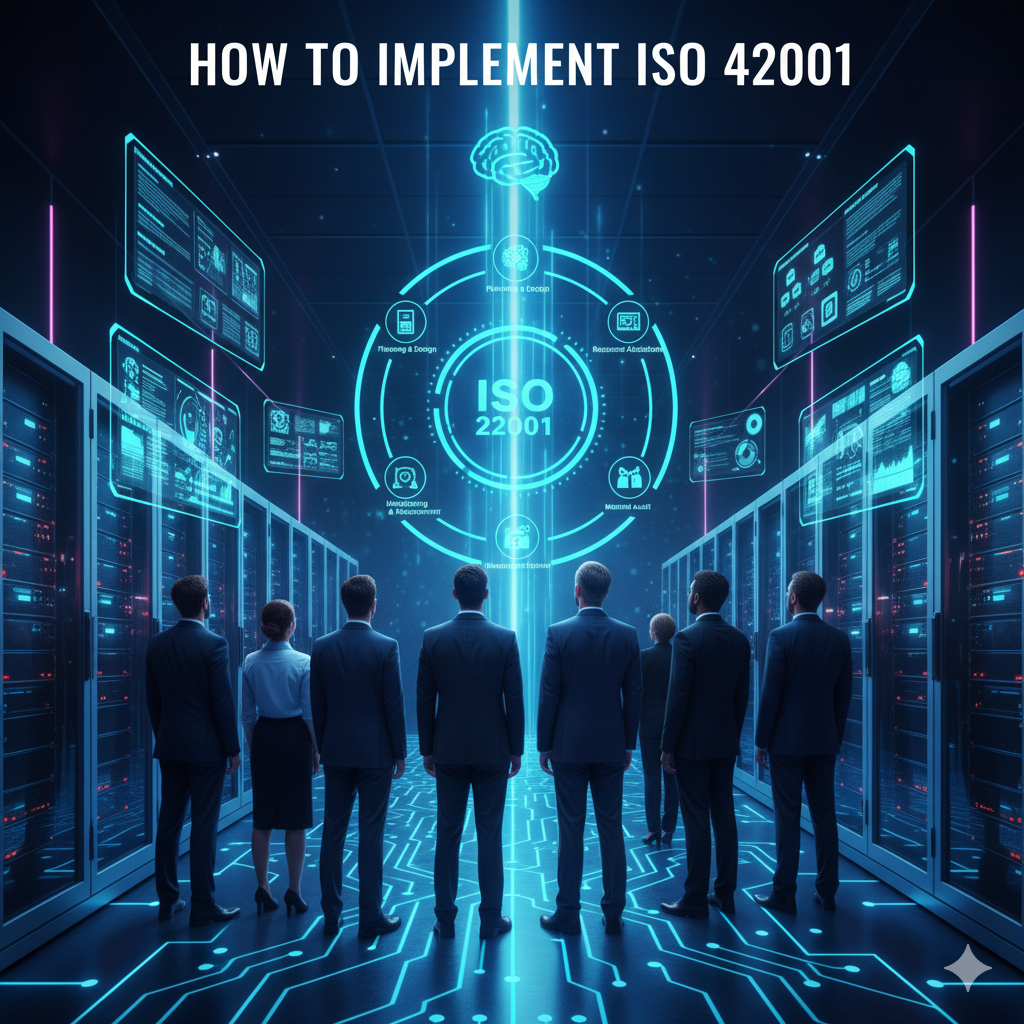AI keynote speakers are industry experts who present at conferences and events about artificial intelligence topics, trends, and applications. Finding the right speaker determines event success and audience engagement.
The artificial intelligence landscape has transformed from academic research into a technology reshaping entire industries. Organizations across healthcare, finance, manufacturing, and technology sectors now integrate AI into core operations. This widespread adoption creates demand for authoritative voices who can explain complex AI concepts to diverse audiences.
Event planners face increasing pressure to deliver programs that provide genuine value rather than surface-level technology discussions. Attendees expect speakers who combine deep technical knowledge with practical implementation experience. The challenge lies in identifying experts who can translate sophisticated AI developments into actionable insights for specific industries and organizational contexts.
What Makes an Outstanding AI Keynote Speaker
Selecting the right AI keynote speaker requires evaluating multiple dimensions beyond simple name recognition or technical credentials. The best speakers combine technical expertise with communication skills that make complex topics accessible to their intended audience.

Technical Expertise and Real-World Experience
Outstanding AI speakers possess deep technical knowledge gained through hands-on experience developing, deploying, or researching AI systems. This expertise shows in their ability to explain complex concepts accurately without oversimplification or technical errors.
Credible speakers typically have track records that demonstrate sustained contributions to AI advancement:
- Published research in peer-reviewed venues
- Leadership roles in AI development at major technology companies
- Patents or innovations that have influenced AI development
- Direct involvement in building AI systems that operate at scale
The most effective speakers combine theoretical understanding with practical experience. They can discuss both the mathematical foundations underlying AI techniques and the real-world challenges of implementing these techniques in production environments.
Communication Skills That Connect With Audiences
Technical expertise alone doesn’t make an effective keynote speaker. Outstanding AI speakers translate complex concepts into language appropriate for their audience without losing essential meaning or accuracy.
Strong AI speakers demonstrate clear explanation of technical concepts using analogies and examples. They adjust technical depth based on audience composition and use storytelling skills that make abstract concepts concrete and memorable. The best speakers avoid jargon when simpler language serves the same purpose.
Thought Leadership and Future Vision
Exceptional AI speakers offer perspectives that help audiences understand not just current capabilities but also future directions and implications. They provide frameworks for thinking about AI’s trajectory rather than simply describing existing technologies.
Thought leadership in AI speaking includes insights into emerging trends based on deep industry knowledge. These speakers analyze how AI developments will impact specific industries or functions and provide frameworks for understanding AI’s societal implications.
Executives, Pioneering AI Researchers, and Academic Thought Leaders
The theoretical foundations of modern artificial intelligence rest upon decades of research conducted by computer scientists who persevered through multiple periods of skepticism to achieve the breakthroughs that power today’s transformative applications.
Wyatt Mayham

Wyatt Mayham is the founder and CEO of Northwest AI Consulting, an American firm specializing in AI governance, automation strategy, and enterprise workflow transformation. A former executive who built multiple data-driven businesses prior to launching Northwest AI, Mayham is known for translating complex AI systems into practical, measurable outcomes for the organizations he advises. His consultancy has guided enterprise and public-sector clients through private AI deployments, governance frameworks, and automation roadmaps that modernize operations while maintaining data integrity and regulatory alignment.
Beyond consulting, Mayham has become a leading voice on the responsible adoption of agentic AI—helping executives understand not just what AI can do, but how to deploy it safely, transparently, and at scale. His keynote sessions combine strategic clarity with hands-on insight, making him a sought-after speaker for leaders navigating the next era of intelligent automation.
Mayham has been featured in American Banker, Venture Beat, The Street, AOL, Hubspot, ZDNet and dozens of other publications for his thoughts on AI.
Geoffrey Hinton

Source: Wikipedia
Geoffrey Hinton stands among the most influential figures in the history of artificial intelligence, earning recognition as one of the “Godfathers of AI” alongside Yoshua Bengio and Yann LeCun. The three researchers shared the 2018 Turing Award for their groundbreaking work in deep learning.
Hinton’s work on backpropagation, Boltzmann machines, and convolutional neural networks laid the groundwork for the deep learning revolution. In 2024, Hinton’s contributions received further recognition when he was awarded the Nobel Prize in Physics alongside John Hopfield.
Beyond his technical contributions, Hinton has emerged as a vocal advocate for AI safety, particularly following his departure from Google in 2023 to speak more freely about the risks associated with advanced AI systems.
Yann LeCun

Source: The Duke Chronicle
Yann LeCun serves as Vice President and Chief AI Scientist at Meta and Silver Professor at New York University’s Courant Institute of Mathematical Sciences. LeCun shares the Turing Award with Hinton and Bengio for their collective contributions to deep learning.
LeCun is particularly renowned for his pioneering work on convolutional neural networks, which have become foundational to modern computer vision systems. His research encompasses machine learning, computer vision, mobile robotics, and computational neuroscience.
As Chief AI Scientist at Meta, LeCun brings insider perspective on how one of the world’s largest technology companies is developing and deploying AI systems at unprecedented scale, including work on large language models and content moderation.
Fei-Fei Li

Source: Stanford HAI
Fei-Fei Li serves as Sequoia Professor in the Computer Science Department at Stanford University and co-director of Stanford’s Human-Centered AI Institute. Li has profoundly shaped modern computer vision through her work on ImageNet, a massive visual database that became the foundation for training deep learning models.
Her concept of using internet-scale data to train AI models demonstrated prescience about the importance of large datasets that has proven fundamental to subsequent AI breakthroughs. Li’s research philosophy emphasizes human-centered AI, focusing on developing technology that augments human capabilities.
Li’s recent work on spatial intelligence and Large World Models represents the cutting edge of AI research, exploring how AI systems can develop understanding of and interaction with the three-dimensional physical world.
AI Ethics and Responsible Innovation Advocates
As AI systems become more powerful and widespread, questions about their fairness, safety, and impact on society have become urgent priorities. These researchers and advocates examine how AI affects different communities and what risks emerge as AI capabilities grow.
Timnit Gebru
Timnit Gebru founded the Distributed AI Research Institute after her departure from Google in 2020 sparked widespread debate about corporate control over AI research. Her PhD research at Stanford revealed significant racial and gender biases in commercial facial recognition systems.
Gebru co-authored the influential Gender Shades paper with Joy Buolamwini, research that prompted major companies including IBM and Microsoft to improve their facial recognition systems. Her work extends beyond technical bias detection to examine who controls AI development.
Through DAIR, Gebru leads research focused on AI that serves marginalized communities and addresses power imbalances in AI development. She co-founded Black in AI to increase representation of Black researchers in the field.
Joy Buolamwini
Joy Buolamwini discovered facial recognition bias through personal experience when MIT’s facial recognition systems failed to detect her face while easily recognizing lighter-skinned individuals. Her research demonstrated these errors were systematic biases reflecting training dataset composition.
The Algorithmic Justice League, which Buolamwini founded, raises awareness about AI impacts and provides empirical research to advocates. The organization actively challenges facial recognition surveillance and advocates for transparency about AI system deployment.
Buolamwini’s story gained mainstream attention through the Sundance Film Festival documentary “Coded Bias”. Her presentations combine compelling narratives about AI’s real-world impacts with technical research demonstrating how algorithmic discrimination occurs.
Stuart Russell
Stuart Russell serves as Professor of Computer Science at UC Berkeley and Director of the Center for Human-Compatible Artificial Intelligence. His textbook “Artificial Intelligence: A Modern Approach”, co-authored with Peter Norvig, has educated countless AI researchers worldwide.
Russell’s book “Human Compatible: AI and the Problem of Control” argues that standard AI development approaches become increasingly dangerous as systems become more capable. He advocates for AI systems that remain uncertain about human preferences and defer to human guidance.
Russell has worked extensively on lethal autonomous weapons threats, collaborating with the United Nations to establish norms limiting military AI applications. He serves as co-chair of the World Economic Forum’s Council on AI.
How to Select the Perfect AI Speaker for Your Audience
Selecting an AI speaker requires matching the speaker’s expertise and communication style to your specific audience and event goals. The key lies in understanding your audience’s knowledge level, industry focus, and what they hope to gain from the presentation.
Match Speaker Expertise to Your Industry
Healthcare and life sciences audiences benefit from speakers who understand regulatory requirements and patient safety considerations. Manufacturing sectors connect well with speakers focused on robotics and autonomous systems. Financial services organizations respond to speakers who understand regulatory compliance and risk management.
Government and policy audiences require speakers who understand governance challenges and public sector constraints. Retail companies benefit from speakers who understand customer experience and recommendation systems.
Balance Technical Depth With Accessibility
Executive leadership audiences typically prefer high-level strategic perspectives rather than technical implementation details. Technical practitioner groups can handle detailed technical content about neural network architectures and training techniques.
Mixed technical and business audiences require speakers who can navigate between technical accuracy and business relevance. General business audiences benefit from speakers who use analogies and avoid technical jargon.
Ensure Current and Relevant Perspectives
Generative AI and agentic AI represent the dominant trends through 2024-2025. Speakers working directly with these technologies provide current insights into capabilities and limitations.
AI safety and governance have gained prominence as AI systems become more capable. Enterprise AI implementation focuses on practical deployment challenges organizations face when adopting AI technologies.
Essential Booking Considerations
Booking an AI keynote speaker requires careful planning across multiple dimensions. The AI speaking circuit operates differently from other professional speaking markets due to high demand and the technical nature of content.
Plan for Extended Lead Times
Pioneer researchers like Geoffrey Hinton and Yann LeCun typically book 6-12 months in advance due to their global demand and selective acceptance of speaking engagements. Industry executives maintain particularly tight schedules and may only accept a handful of external speaking engagements annually.
Mid-tier speakers including domain specialists generally book 3-6 months ahead, while emerging voices may accept engagements with 1-3 months notice. Academic speakers often have seasonal availability patterns around university calendars.
Budget for Premium Expertise

Source: SpeakerFlow
Speaker fees vary dramatically based on recognition and market demand:
- Pioneer researchers: $100,000 to $300,000 plus expenses
- Industry executives: $75,000 to $200,000
- Domain specialists: $25,000 to $75,000
- Corporate AI leaders: $10,000 to $40,000
Additional costs include first-class travel, luxury accommodations, and sometimes specific technical setups or security arrangements.
Verify Technical Requirements
AI keynote speakers often present complex visual content requiring high-resolution projection systems and reliable internet connectivity for live demonstrations. Some speakers integrate live coding demonstrations or real-time AI model interactions.
Pioneer researchers may request specific presentation software and multiple monitors for complex diagrams. Industry executives often incorporate proprietary technology demos requiring secure network connections.
Frequently Asked Questions About AI Keynote Speakers
How far in advance do top AI speakers typically book their speaking engagements?
Pioneer researchers like Geoffrey Hinton, Yann LeCun, and Yoshua Bengio require booking 6-12 months in advance due to their limited speaking schedules and high demand. Industry executives such as Satya Nadella or Sundar Pichai typically need 12-18 months advance notice because of their corporate responsibilities.
Peak conference seasons from September through November and March through May increase competition for speaker availability. Technology conferences, university events, and corporate gatherings cluster during these periods, creating scheduling conflicts.
What fee ranges should organizations expect for different types of AI speakers?
Pioneer researchers and Turing Award winners command fees ranging from $100,000 to $300,000 plus expenses for keynote presentations. Industry executives from major technology companies typically charge $75,000 to $200,000 depending on their company profile and recognition.
Academic researchers and domain specialists generally charge $25,000 to $75,000 for keynote presentations, while corporate AI leaders may range from $10,000 to $40,000. Ethics researchers often charge lower fees but may donate speaking fees to research organizations.
Which AI speakers offer virtual presentation options and how effective are they?
Most AI speakers adapted to virtual presentations during 2020-2021 and continue offering remote options. Academic researchers frequently present virtually due to teaching schedules, while industry executives often prefer virtual formats for efficiency.
Virtual presentations require reliable internet connections, professional audio-visual equipment, and technical support for platform management. Interactive features like live Q&A and screen sharing enhance virtual engagement. Time zone considerations affect scheduling, particularly for international speakers.
How can event planners verify an AI speaker’s current expertise and credentials?
Review publication records through academic databases like Google Scholar and arXiv to confirm research contributions. Check university faculty pages and company leadership profiles for current positions and career history.
Examine recent conference presentations through video archives from events like NeurIPS and major technology company conferences. Verify awards including the Turing Award and fellowship memberships in professional societies. Review recent media coverage in reputable technology publications.
What questions help determine if an AI speaker matches your event’s specific needs?
Ask about content customization capabilities, including whether speakers can tailor presentations to specific industries or technical skill levels. Determine preparation time requirements and willingness to incorporate company-specific examples.
Inquire about audience interaction preferences, including Q&A session management and workshop facilitation. Confirm technical requirements including presentation software and audio-visual equipment specifications. Discuss speaking experience with similar audiences to assess presentation style effectiveness.
The artificial intelligence revolution continues accelerating, creating opportunities for organizations that can navigate AI adoption complexities. The speakers in this guide represent authoritative voices who can help your audience understand not just what AI can do, but how to harness its power responsibly and effectively. Success in the AI era requires strategic vision, ethical awareness, and practical implementation expertise that comes from those who have shaped the field’s development.

